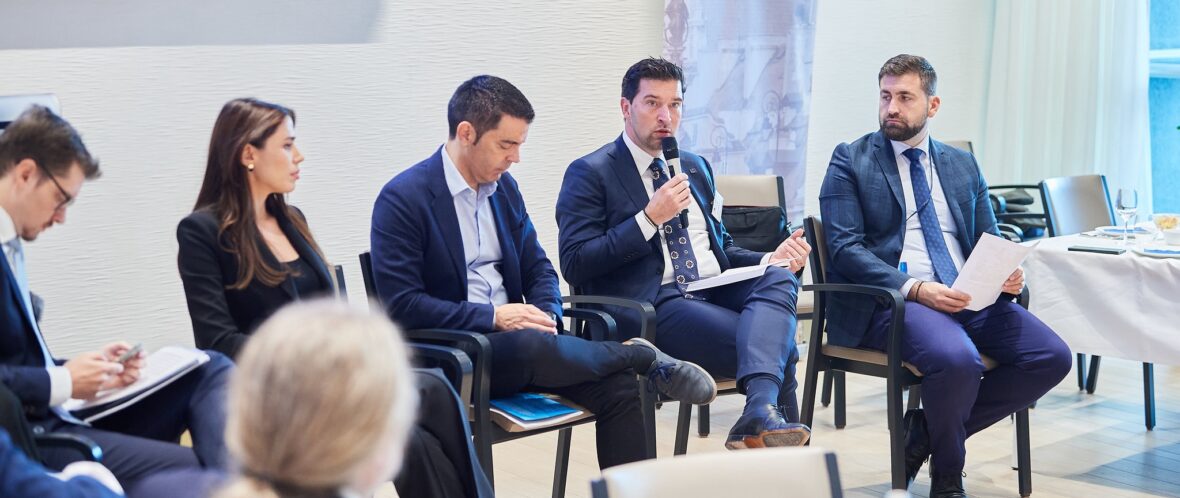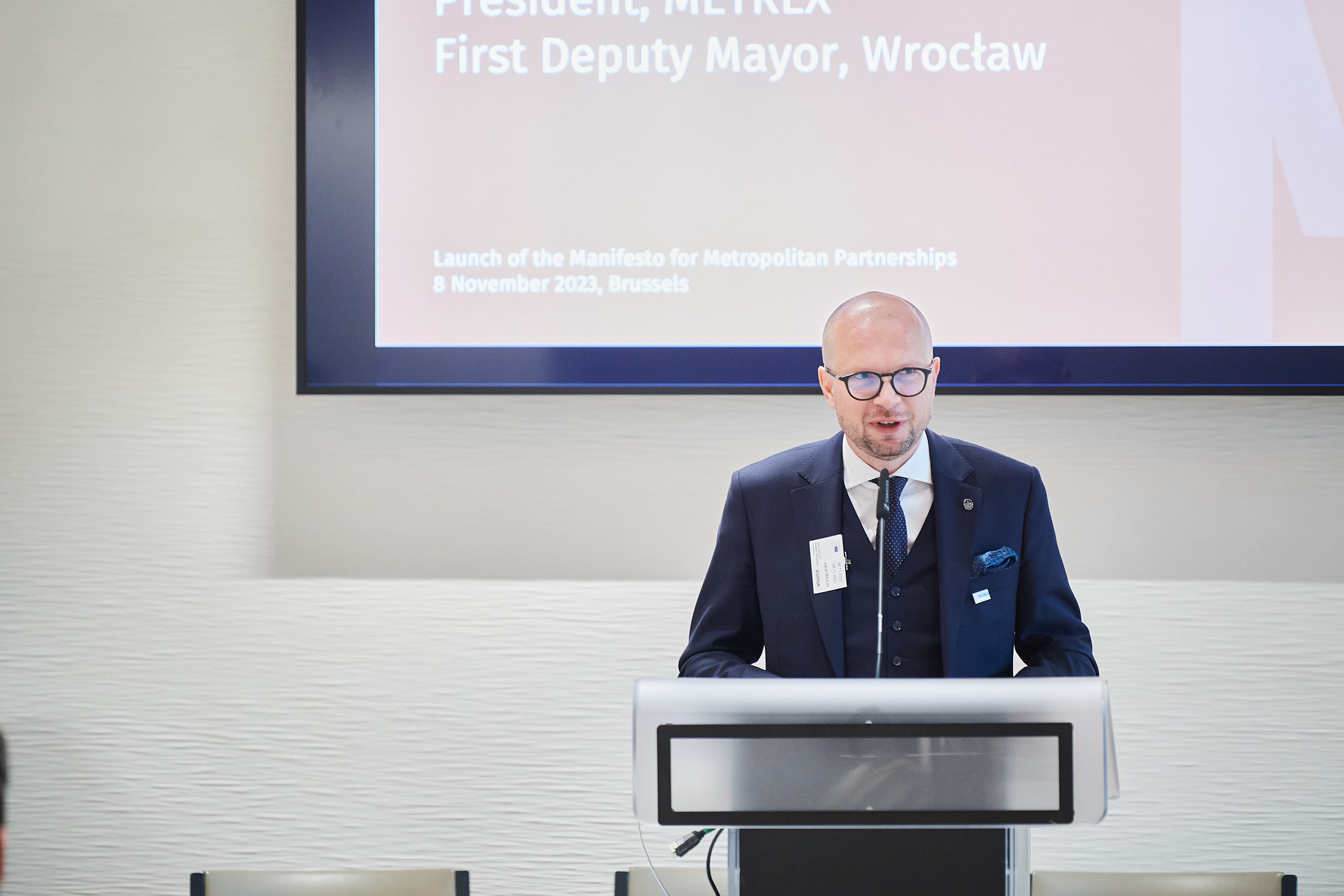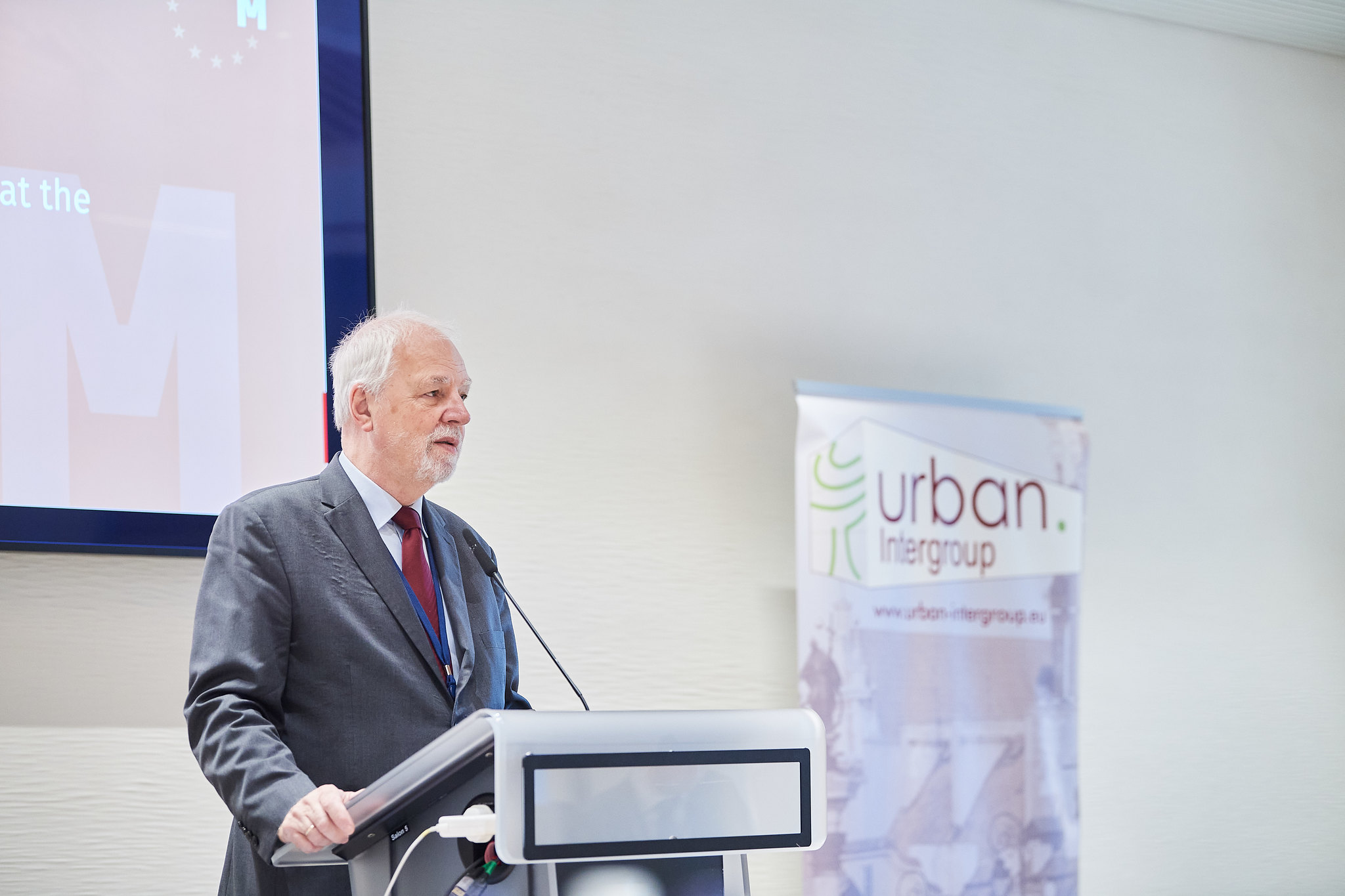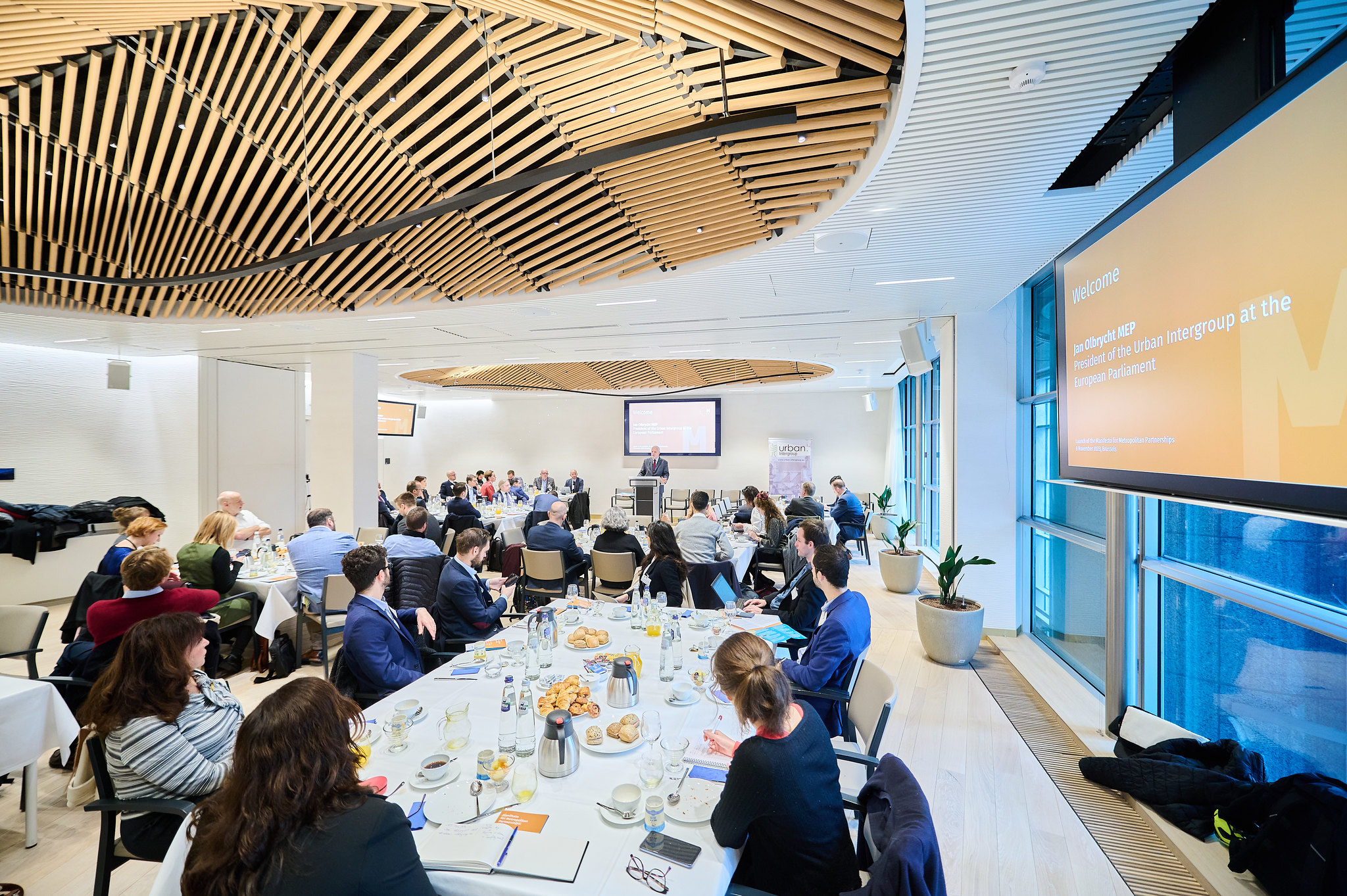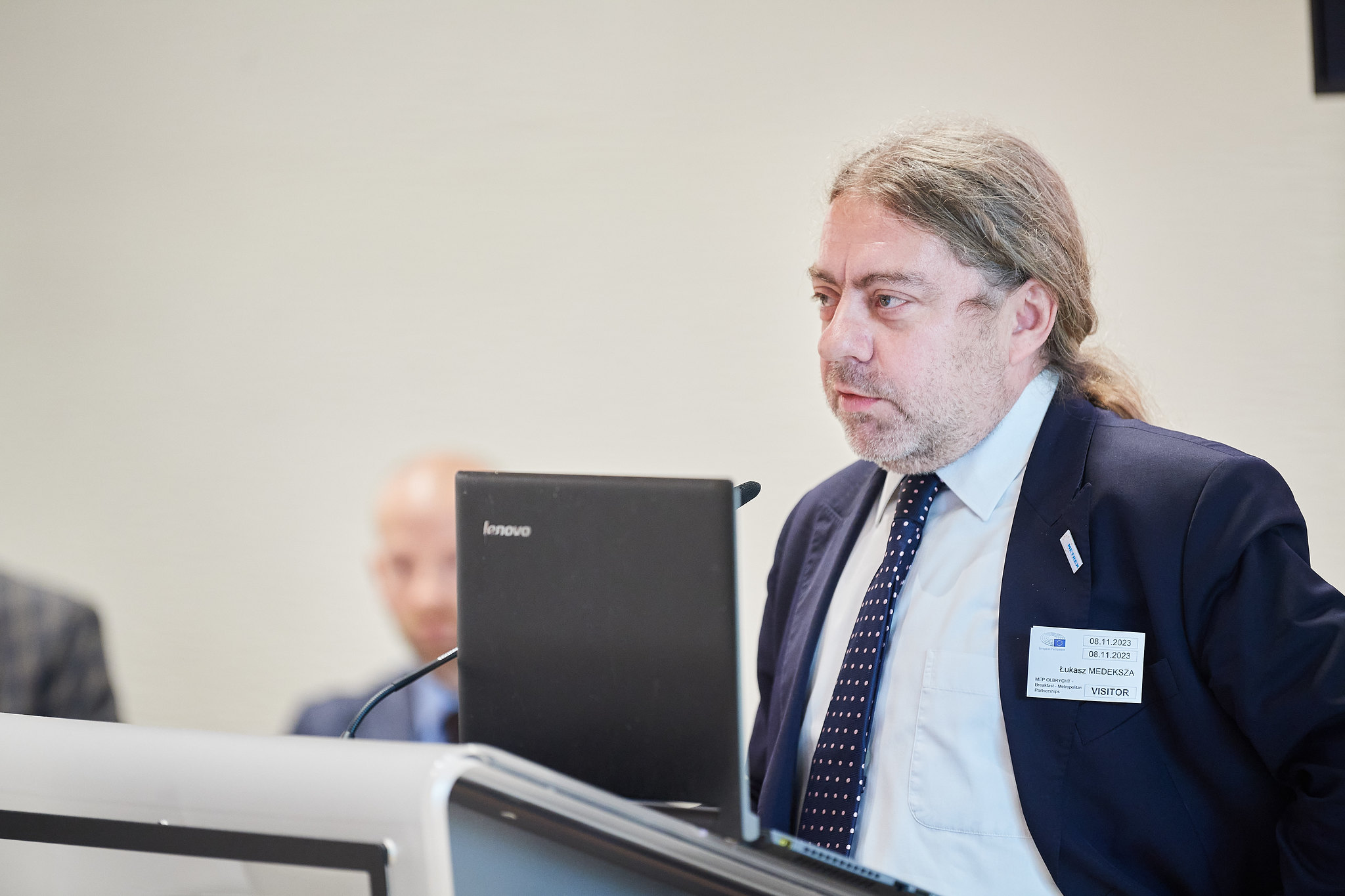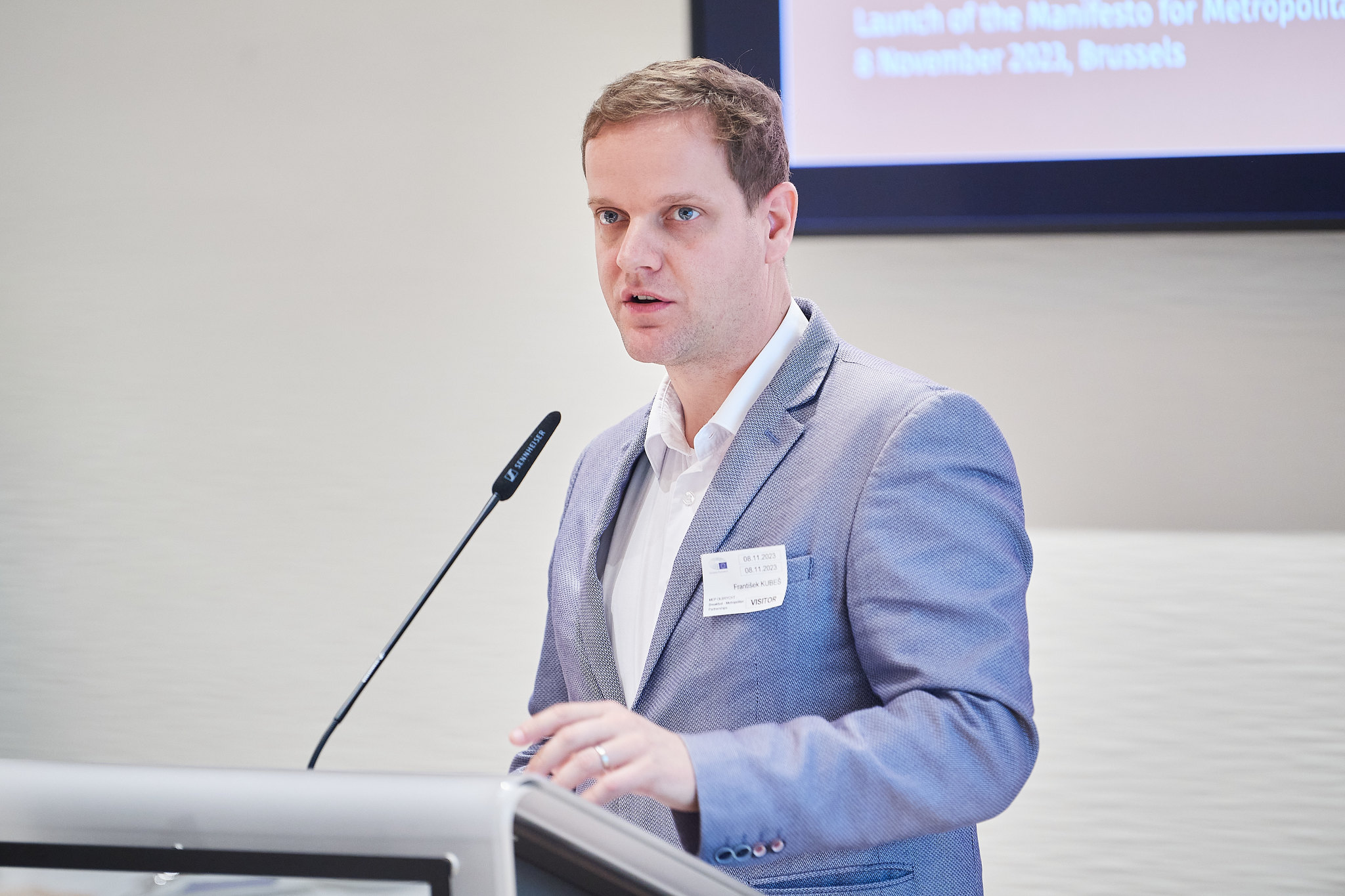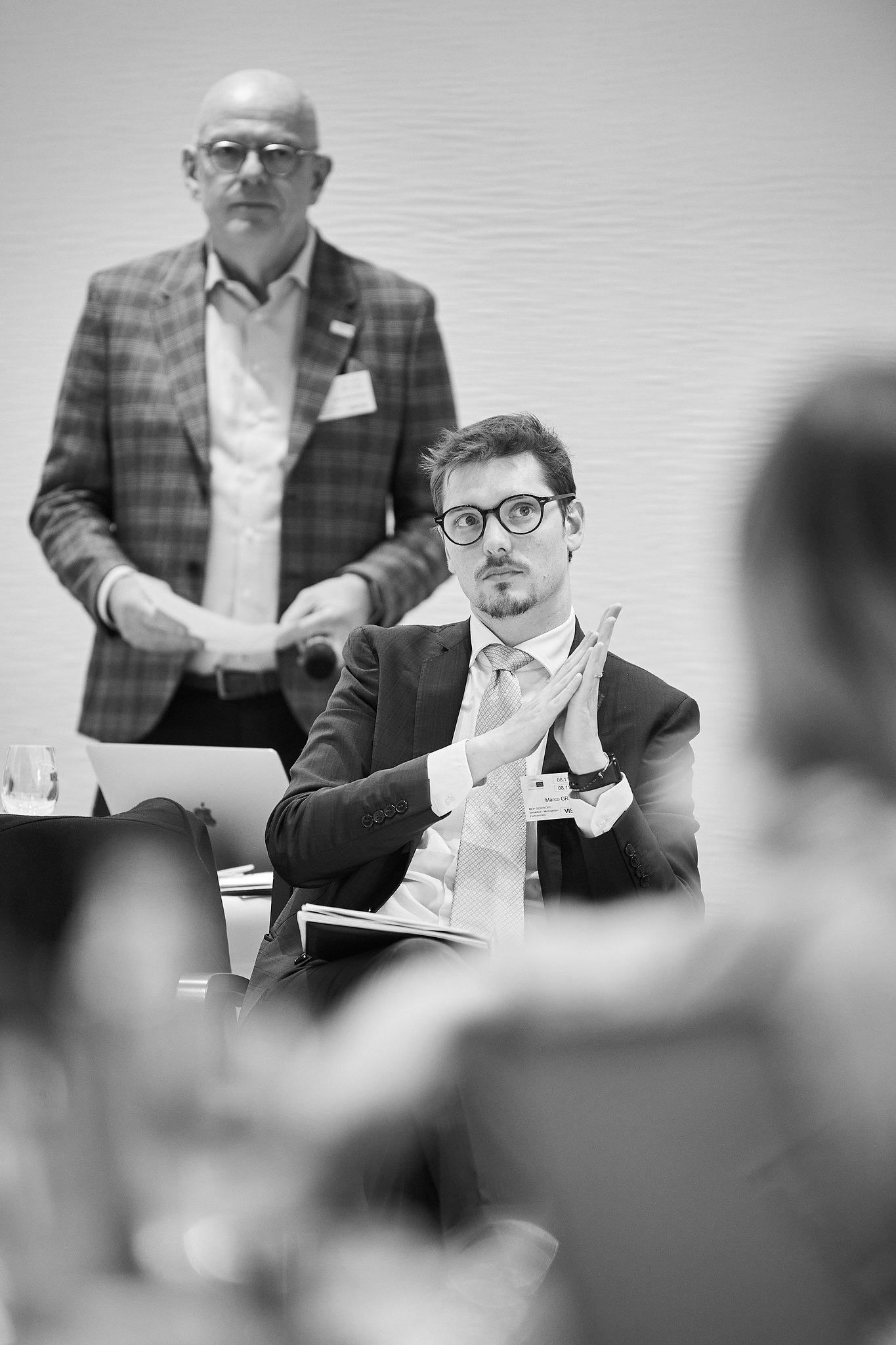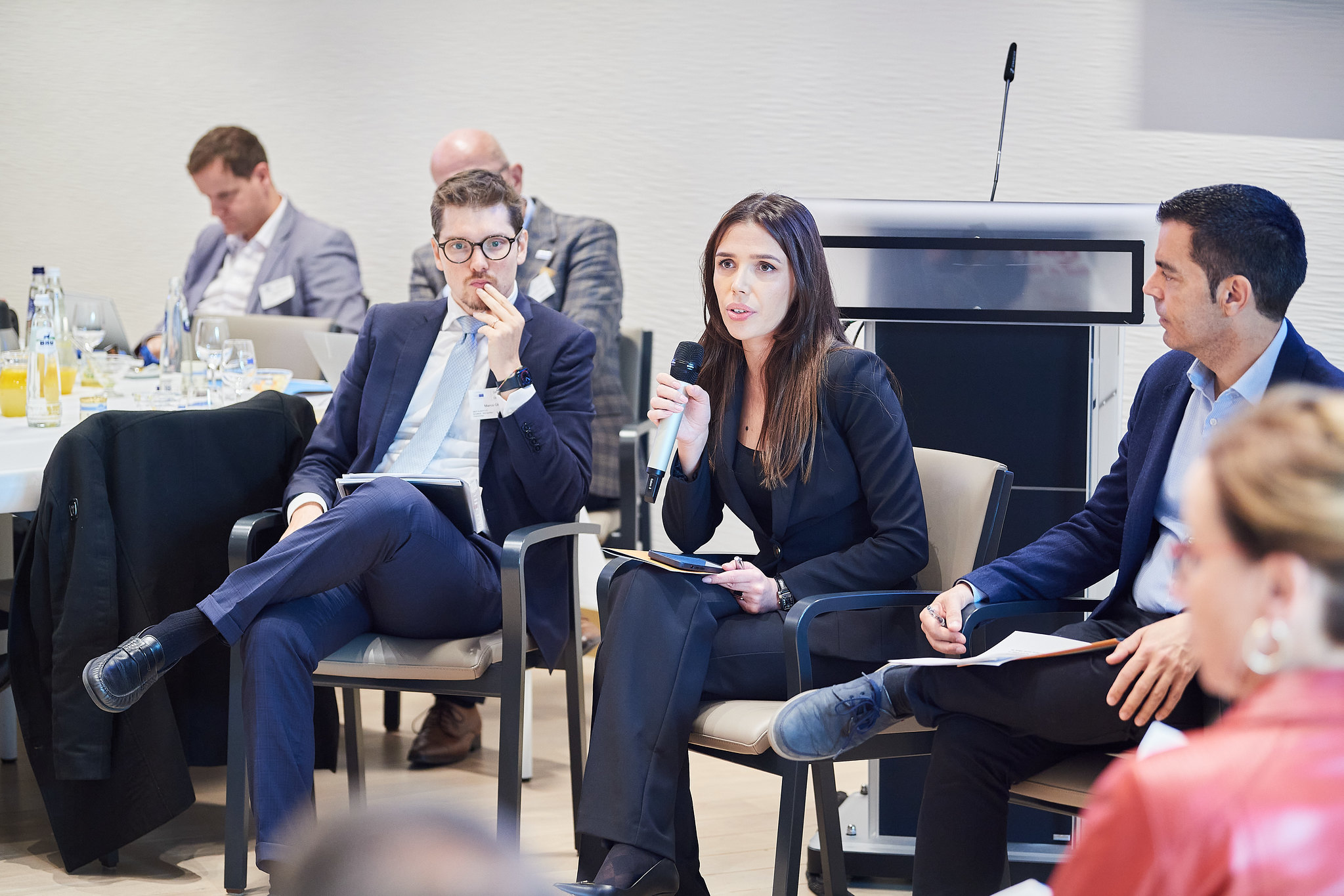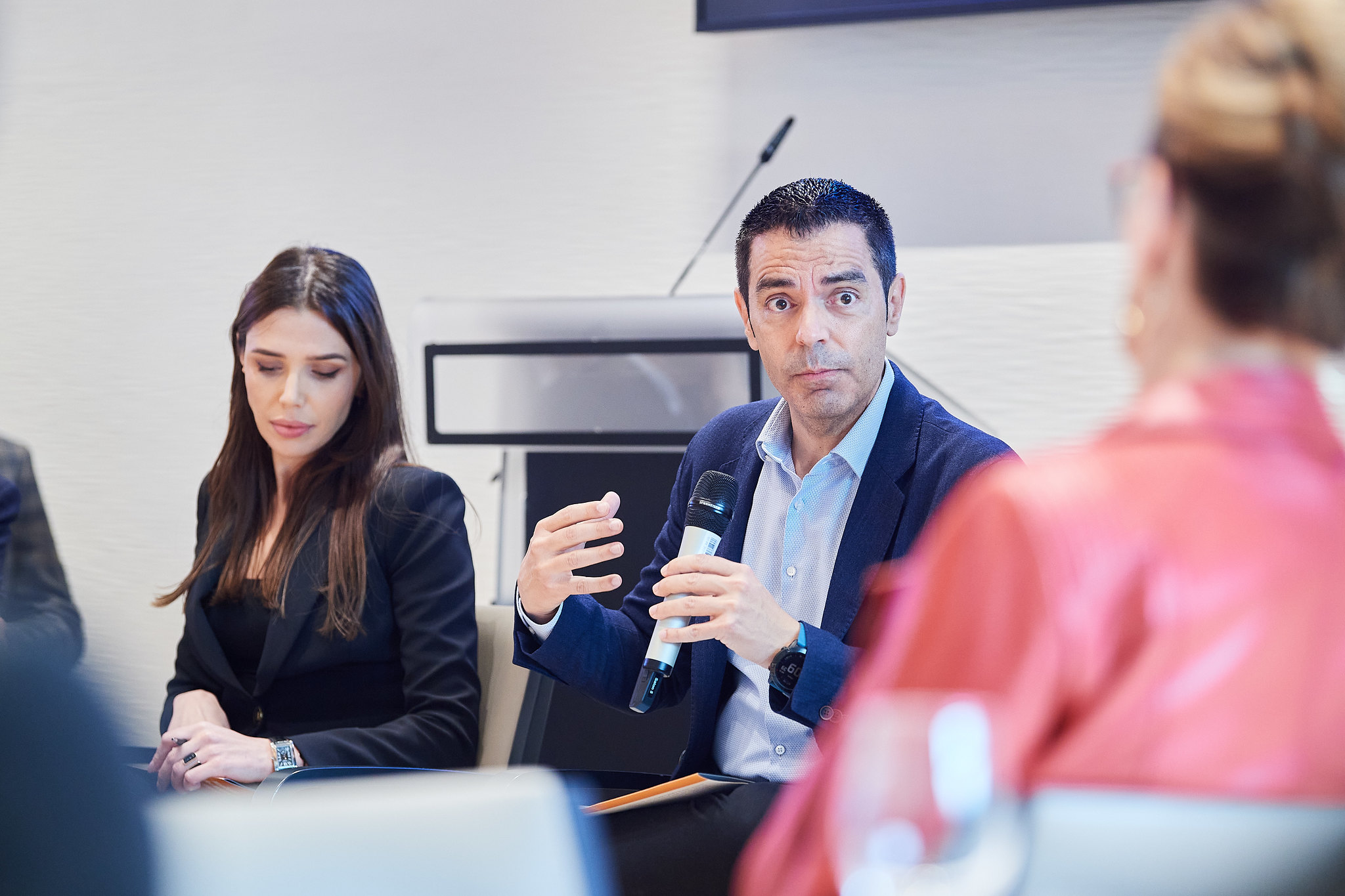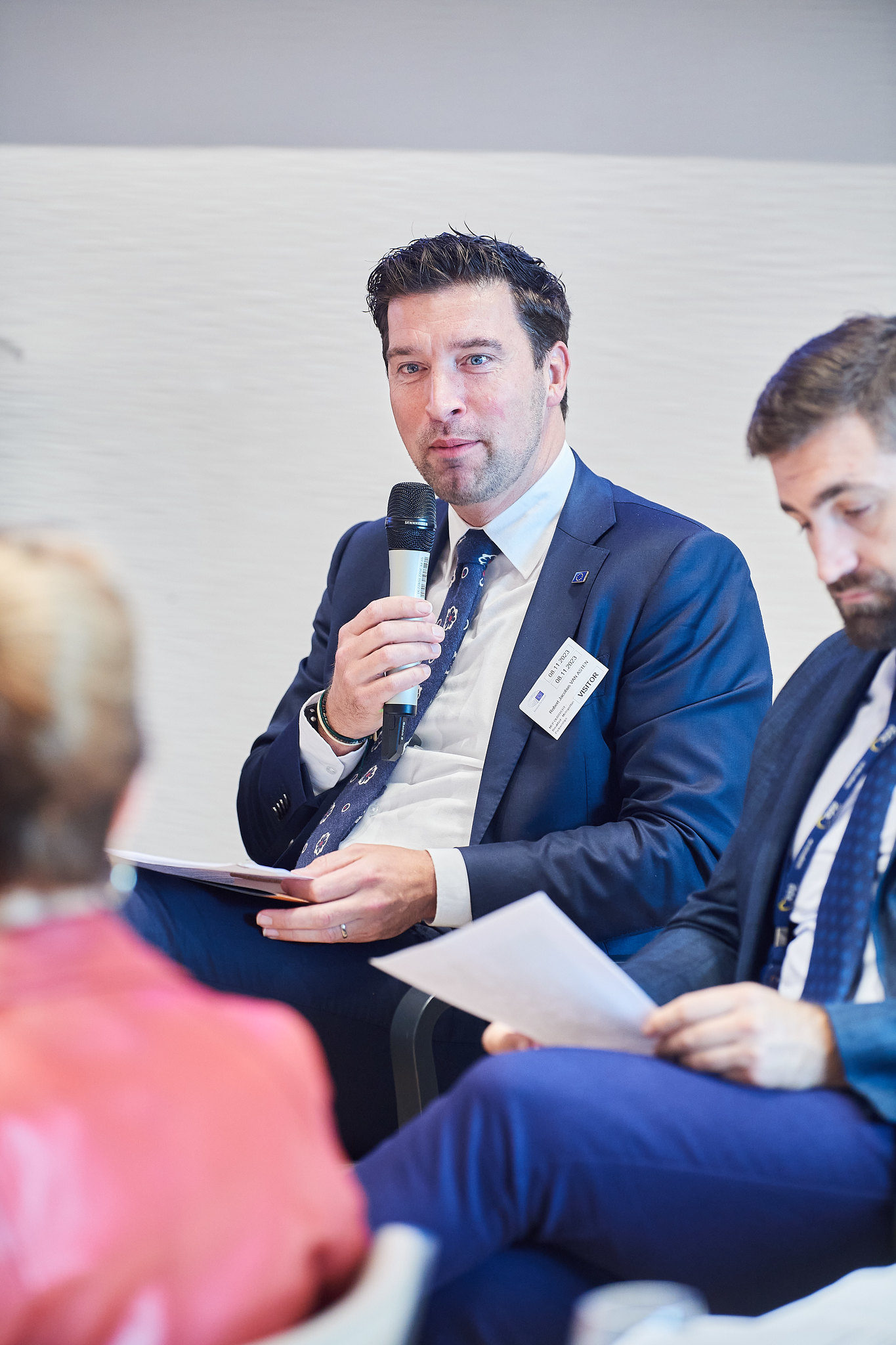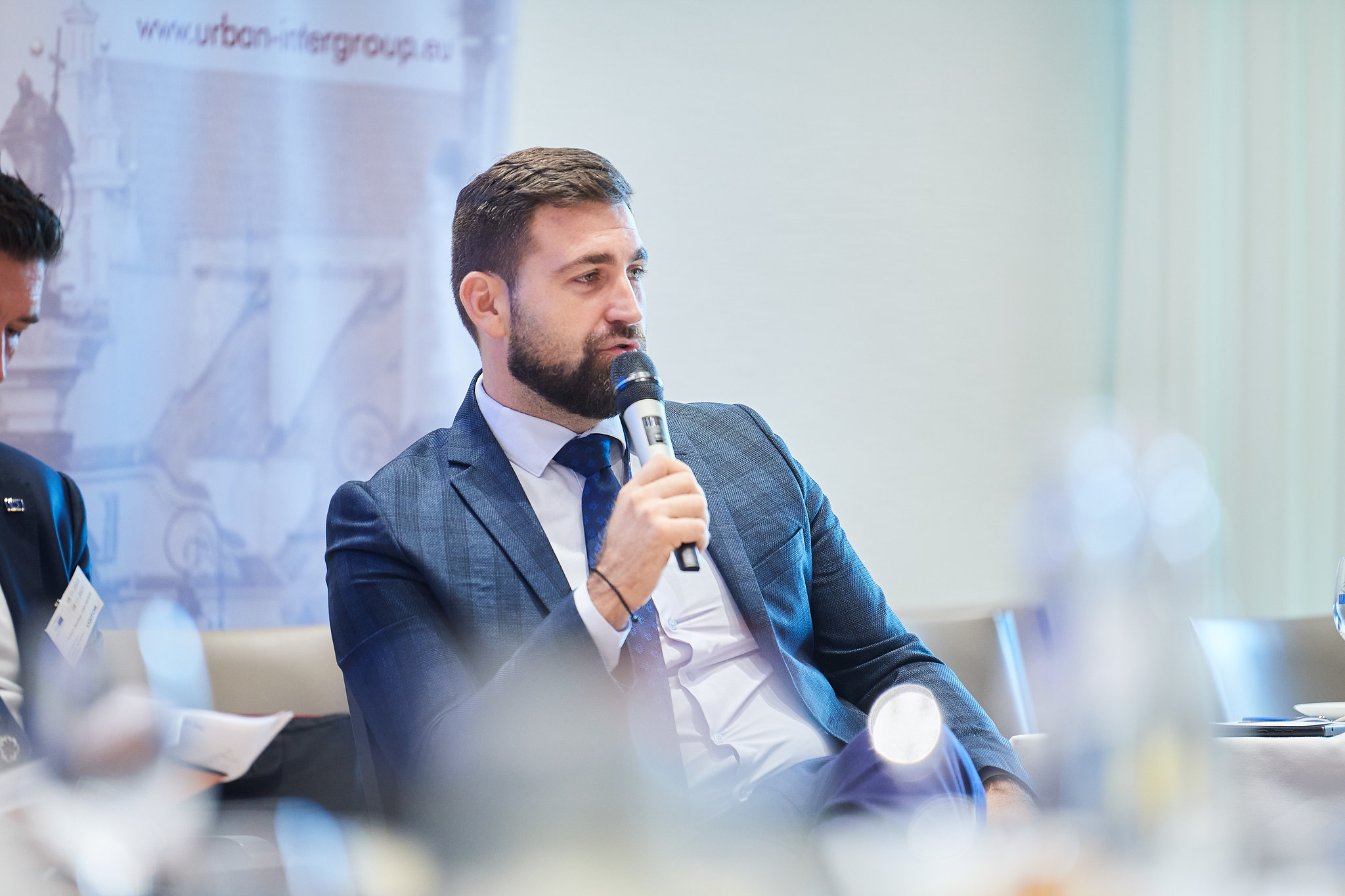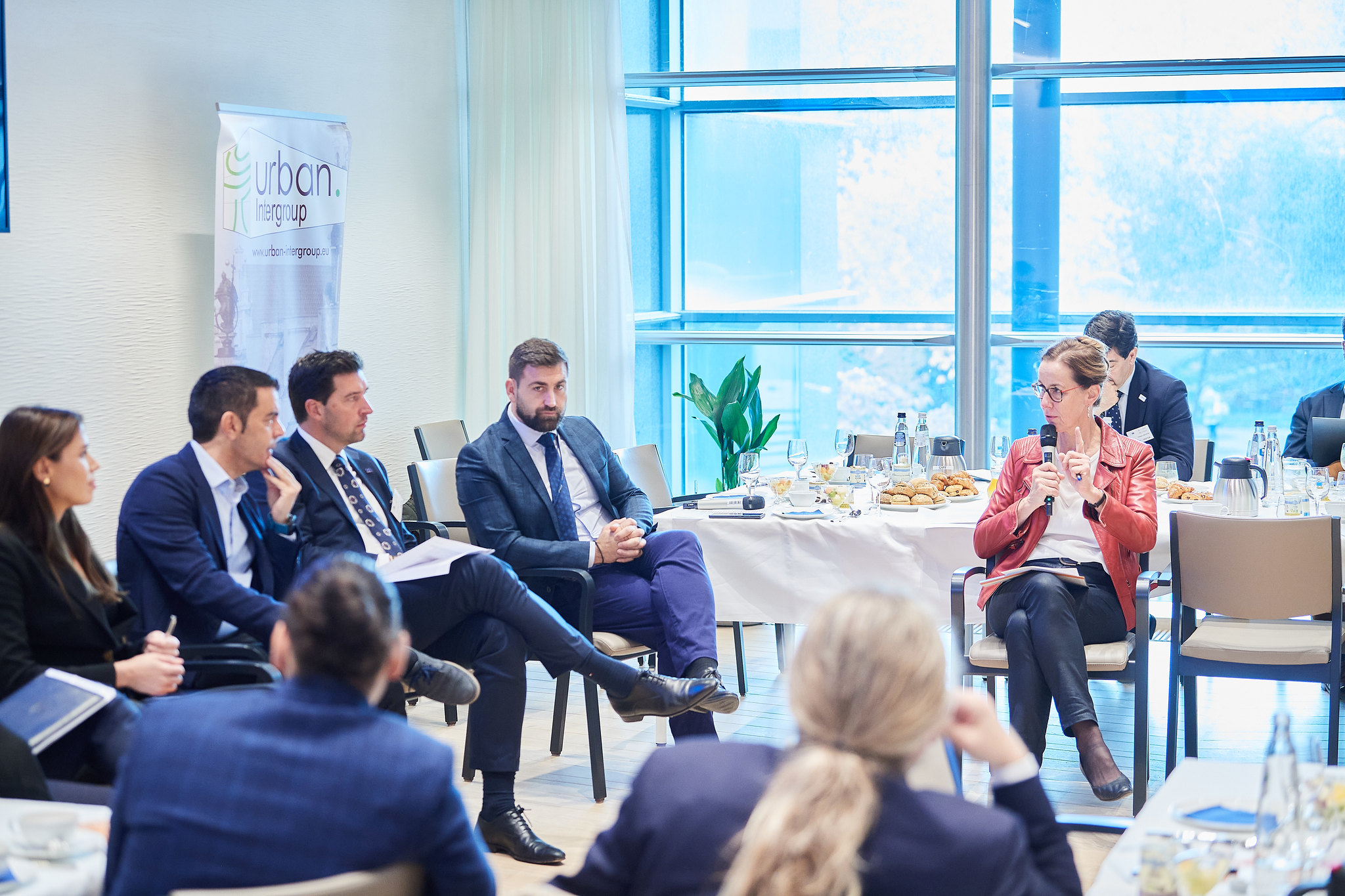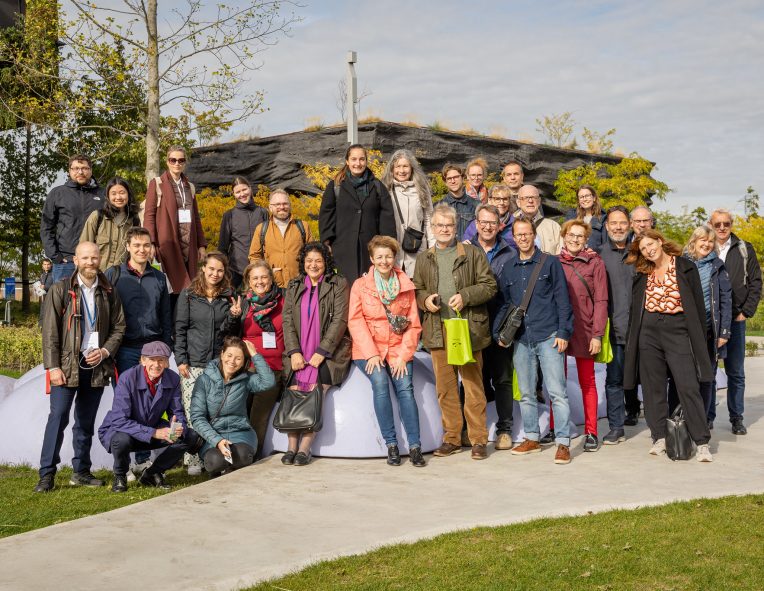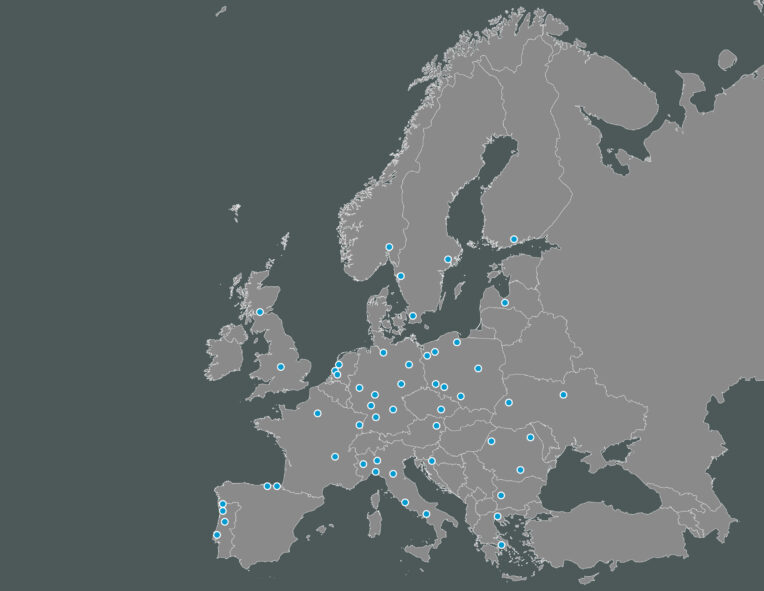On 8 November 2023, the Urban Intergroup welcomed METREX to an event to discuss a Manifesto for Metropolitan Partnerships. MEPs and deputy Mayors from across Europe met at the European Parliament to discuss the 7-point manifesto from METREX, which has high ambitions to change the relationship between the EU and metropolitan-level government. The event was moderated by Henk Bouwman and MEP Fabienne Keller.
In opening the event Jan Olbrycht, Member of the European Parliament and president of the Urban Intergroup, urged METREX to focus efforts on the people who will prepare the next European budget, work on which will begin after the coming elections. Mr Olbrycht set a cautious context, outlining changes being discussed at the European Commission including a possible merger of the Committee of the Regions with Employment. This change, for example, would have a serious effect on the Cohesion Policy, on which so many regions and areas rely for funding.
Jakub Mazur, the first deputy mayor of Wrocław and president of METREX, opened with a reckoning on Europe’s changing position in the world. Mr. Mazur cited a Financial Times report that compared the EU and US economies, which 20 years ago were almost on par. Today, however, the EU only measures in at 65 percent of the US economy. Mr. Mazur believes that the answer to rebuilding Europe’s global position is Metropolitan Partnerships – the theme behind the Manifesto. “It is a new era for metropolitan areas”, said Mr. Mazur, calling for significant new financial and structural backing to see that these Partnerships can help Europe regain its global competitiveness.
The manifesto was presented by Łukasz Medeksza, a member of the METREX board and from municipality of Wrocław. Mr. Medeksza spoke about the interconnections and richness of metropolitan regions being a defining factor behind their potential. Metropolitan regions can aim big in terms of inward investment, with Mr. Medeksza citing a new semi-conductor facility due to bring around 2,000 jobs to the region around Wrocław. This, Mr. Medeksza said, points to the fact that real metropolitan areas are not solely about public institutions, but rather they are a mesh of public, private and other sectors. Mr. Medeksza reported that metropolitan regions and areas are home to over 60 percent of Europe’s citizens, with 80 percent of migrants settling within them. But while they produce nearly 70 percent of EU GDP, they account for around 70 percent of emissions. Which on one hand means they are a useful place to focus attention on climate mitigation measures.
Speaking about the latent potential of metropolitan regions, Mr. Medeksza highlighted their varied institutional structures as one of the stalling points to greater success. This varied and sometimes informal governance has proven difficult for the EU to grasp. ‘Metropolitan Partnerships’ is therefore a useful umbrella under which to organise and present an identity. Metropolitan Partnerships are not only relationships between actors within territorial areas, but also with European institutions.
The EU has always been a “club of states”, said Mr. Medeksza, however he stressed that the metropolitan level is the obvious actor to deliver objectives such as green deal and tackle challenges like housing and migration. Above all, Mr. Medeksza said, “our manifesto is about rediscovering the real engines of Europe in turbulent times of global change. It is about making the EU more efficient. About regaining the global competitive position of the EU, and preserving quality of life.”
Representing the department of strategic development and cooperation in the city of Brno and the Eurocities working group on metropolitan governance, František Kubeš spoke about a lack of formal structure and recognition for the metropolitan level in Czechia. Despite this, Brno has been active in working where possible at the metropolitan level to solve certain challenges. Mr. Kubeš spoke about his positive experience of using the ITI instrument – Integrated Territorial Investments – which has given Brno the license to operate at this level, the results of which have been very successful. Mr Kubeš welcomed the manifesto as a way to advocate for positive change.
Panel statements
Following video messages of support from Arianna Censi, Councilor at Città metropolitana di Milano and member of the Committee of Regions and Stelian Bujduveanu, a panel of European and local politicians, moderated by the vice president of the Urban Intergroup, MEP Fabienne Keller, was asked to respond to the manifesto and its seven calls-to-action.
Marco Griguolo, the deputy mayor of the metropolitan city of Milan, praised metropolitan regions as one of the principal actors to achieve European goals. Mr. Griguolo called for formal recognition nationally and internationally of a metropolitan level that is adaptive to the many and diverse issues Europe faces. Mr Griguolo reinforced the Manifesto’s call for a commissioner dedicated to the metropolitan dimension, which could support the international coordination and development of this level. Enhancing links was a strong theme promoted by Mr. Griguolo, who called for better physical connections between people, markets and institutions, a position Milan understands well a major transport hub and a gateway between Italy and Europe.
Gianana Panatau, the general director of the Bucharest Metropolitan Area lntercommunity Development Association, welcomed the manifesto’s position in advocating for a metropolitan funding program. This level of backing would give metropolitan areas a stronger voice, according to Ms. Panatau, and the means to include a wider array of stakeholders in development processes. Ms. Panatau spoke about the need for greater parity between a strong city and its peri-urban and rural neighbours. Adding that it is not enough to have a buoyant city in isolation – quality of life comes from economic development, not just economic growth. Overall, Ms Panatau believes, the demands within the manifesto will help to make sustainable development projects easier to deliver, bringing citizens a better quality of life.
MEP Marcos Ros, who is the Socialists coordinator for REGI Committee, spoke about the importance of a new institutional framework that compliments metropolitan regions and areas, which in turn would boost efforts against climate change, war, housing and the effects of Covid. Mobility, home working and different lifestyle choices are impacting the social and physical composition of cities and Mr. Ros therefore welcomed the timing of the manifesto and the call for wider use of metropolitan partnerships. Mr. Ros welcomed also the focus on different dimensions from urban to rural, but suggested the inclusion of ‘peri-urban’ areas which are, within his native Spain, complex spaces to analyse and understand. Concluding, Mr. Ros called for more widespread territorial planning, which he believes would bring about more coordinated development across metropolitan regions and areas. This form of approach would also enhance of the prospects of integrating the territorial agenda for 2023 which, Mr. Ros believes, has not yet been implemented successfully.
Robert van Asten, deputy mayor of The Hague, gave his support for the manifesto and offered context about the challenges that the metropolitan level can tackle in the metropolitan region of Rotterdam / The Hague (MRDH). MRDH includes some large cities and key sites such as the harbour of Rotterdam, and therefore, according to Mr. Van Asten, some significant spatial challenges such as housing and mobility. Mr. Van Asten supported the idea of metropolitan areas being at the table when policies are made, which would bring the unique sensitivity and perspective that comes from the spatial level. Mr. Van Asten ended with a pledge to help initiate an intergroup within the European Parliament dedicated to metropolitan regions and areas. This, according to Mr. Van Asten, would allow colleagues to collaborate and come together around their interest in metropolitan regions and areas.
MEP Andrey Novakov, member of the European Parliament and member of the REGI committee, recalled a recent mission to Ukraine to meet Kyiv mayor Klitschko. Here, Mr. Novakov saw first-hand the “immense power” that comes from unity and cooperation between the city and surrounding villages that comprise the metropolitan level. Mr. Novakov is involved in evaluating and advising on the Committee of Regional Development. For the first time this analysis includes the NUTS 3 level to capture the success of projects at the local political level. What is emerging is a difficult position for the EU with regards to access – and perceived access – to funding. If projects are deemed a success, this is because of an effective local politician. If the projects fail, it is the result of complex funding requirements imposed by the EU. Mr. Novakov therefore called for greater simplicity for cities and regions to access necessary funding. The RRF (recovery and resilience funds) was a popular and effective source of funding precisely because it was relatively quick and easy to access.
Mr. Olbrycht closed the event by describing metropolitan regions as “a concrete solution for the problems that exist between urban and rural areas”. Mr. Olbrycht urged METREX to focus the manifesto campaign on the right people in the European Parliament: look to those that will work across political parties, and to those who are the future of the EU, such as the young MEPs present on the panel today.

